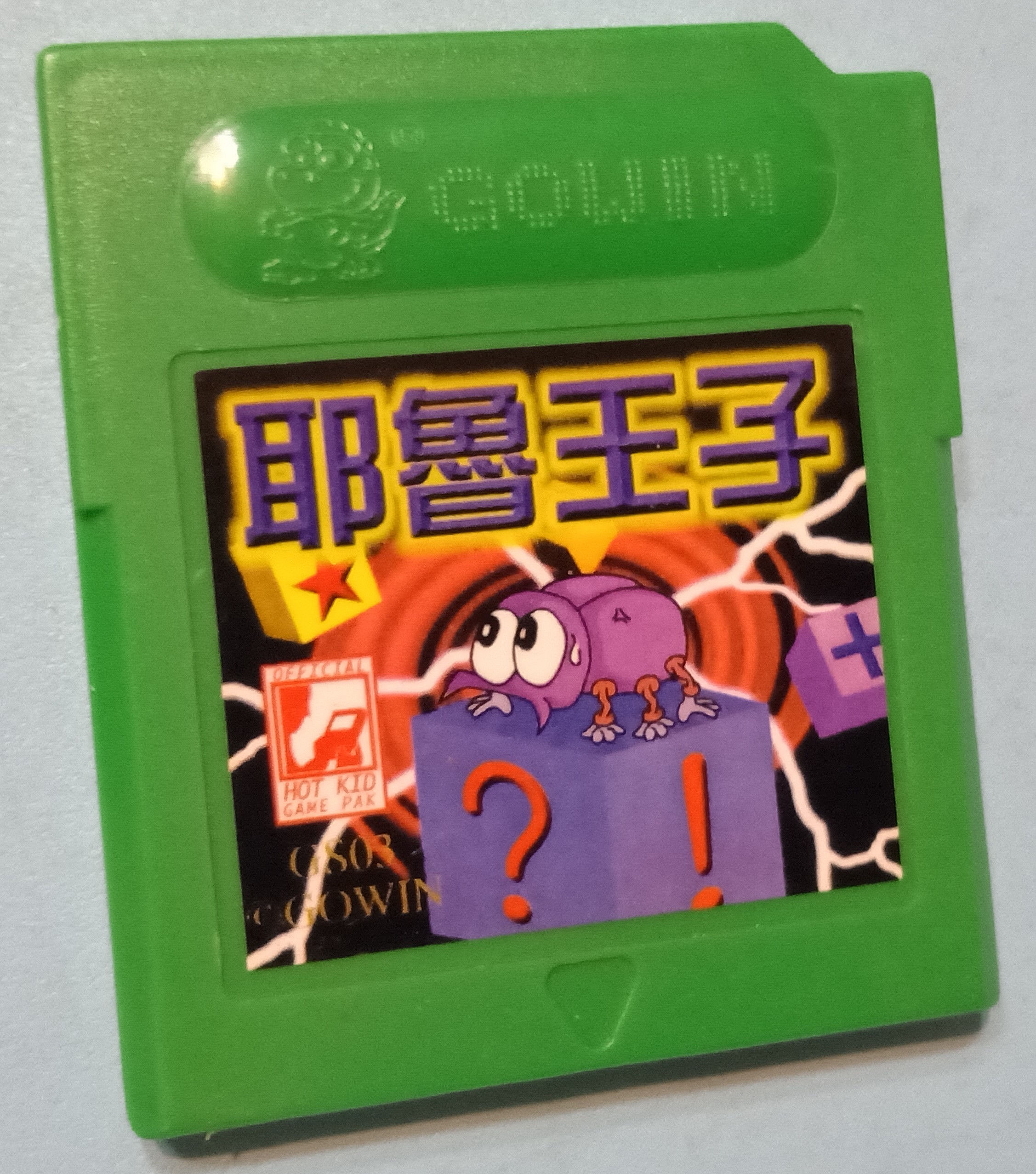Welp, a couple days ago, my desktop suddenly stopped booting to Windows, crashing with a 0xc000021a error, and so far, all of my attempts to fix the issue without doing a clean reinstall (and wiping all my personal files in the process) hasn’t worked. In other words, that’s most of my backlog barred from me for the time being. Luckily, I’ve been able to figure out how to copy files to a USB using the command prompt, so I can back-up at least some of my files to my laptop before trying that. Plus, I can still play non-PC games:

“Prince Yeh Rude” is the game’s English name
This is a puzzle game. Each stage has various blocks with one of four symbols on them, and the goal is to push all the blocks with the same symbol on top of each other, effectively ridding them from the stage one by one (blocks with different symbols will block each other). Once there’s only one block left for its specific symbol, the symbol transforms into a swirl, and once you push all the swirl-symbol blocks on top of each other, you’ve cleared the stage and you get your password.
Movement is unit-based, with your character and each block being one unit large, and you can’t do anything to the blocks besides push them. This means that it’s impossible to make a mistake by pushing two blocks together; the only way you can mess up a puzzle is by pushing a block against a wall, since that means you won’t be able to push it away from the wall.
On top of being simple and easy to learn, most of the game is really easy. The second level is a difficulty spike, but aside from that, the game doesn’t get tricky until the last 10 stages or so, and there are only 30 stages, each being one screen large. So, how does the game make up for its short length and low difficulty? By being annoying: you have three lives, and each level has a time limit of 200 seconds. If you run out of time, the timer resets and you lose a life; run out of lives and it’s The End, now you have to re-enter your password. You also lose a life if you pause the game and re-start the puzzle. There’s an undo button, but it only works for one move; after that, you’re on your own. To be fair, the undo button only lasting one move isn’t too bad since, as mentioned earlier, you can only mess up by pushing a block against a wall, and I do appreciate how running out of time doesn’t completely restart the puzzle like in Toki Tori 1 for GBC; however, it still doesn’t change the fact that time limits and life-systems are completely antithetical to the puzzle genre, merely being leftovers from the action game mentality. Rather than the challenge being focused exclusively on the player’s puzzle solving skill, the player has to solve the level quickly, meaning there’s not much time to stop and think about what to do; instead, the game pressures the player into making hasty decisions lest time runs out and the password must be re-entered.
Admittedly, the only punishment for losing all your lives is that your score resets to zero (and the game doesn’t keep up with your score at the end anyway), but it’s still annoying having to enter passwords over and over in the same sitting, sometimes for the same level.
Ah, but the game has more than just block puzzles: every 5 levels (up to level 20), you’re sent into a little minigame. Each minigame has a different set of rules: the first one is some weird thing involving dice and a 3x3 grid of numbers; the second one is a number guessing game (if your chosen number is too big, the game displays the word “BIG”, and if it’s too small, it displays “TNAMM”); the third is another numer-guessing game, but the only thing I could figure out about it is that each of the four digits had to be different from each other (incorrect guesses displayed strings like “0A2B”); the last one is a card-matching game, but the board is relatively large, and three incorrect guesses results in faliure, so it’s less a memory game and more a luck-based one. Luckily, you don’t have to be successful in any of these mini-games to progress; they only add to your useless score.
Overall, this game is okay. The minigames are confusing and seemingly arbitrary, and the life system is annoying, but the actual puzzle-solving elements of the main game are okay, if easy. If you’re a fan of puzzle games, I’d recommend this game if you can find it for cheap, or in a multicart (for cheap; not all bootlegs are this high-quality).
Eish sorry to hear that I’m starting to have troubles with my laptop having to boot twice before I can log in but not being able to log in period sounds tough